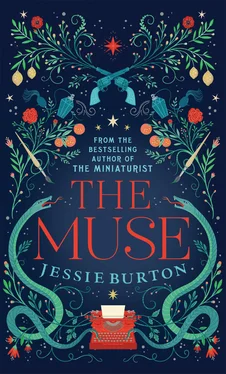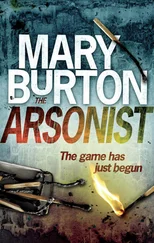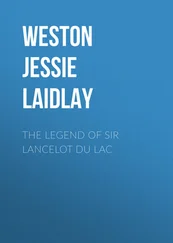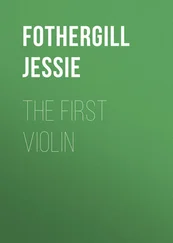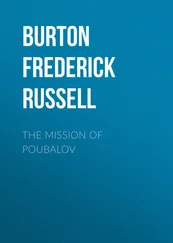‘Quick!’ I yelled. ‘Your umbrella!’ Heads turned to look, but I didn’t care. Quick hurried on, so I ran faster, reaching out to touch her arm. With lightning speed she pulled away from me and whirled round. Her expression was fixed on some distant point well beyond the bustling road, the tall and soot-encrusted buildings, the colourful billboards, the pedestrians hopping desperately around the puddles. Then she focused on me, almost with relief. She was drenched, and though her face was sopping wet, I couldn’t tell if it was rain or tears.
‘I forgot something,’ she said. ‘At home — I’ve forgotten — I need to go back and get it.’
‘Here,’ I said, ‘your umbrella. Let me call you a cab.’
She looked down at her umbrella, then up at me. ‘You’re soaking , Odelle. Why on earth did you run out?’
‘Because — well, because you did. And look at you.’ I put my hand on her wet sleeve and she stared at it momentarily. I was surprised by how thin her arm felt to touch.
‘Here.’ She pulled the umbrella out of my hands and opened it above our heads. We stared at each other under the black canopy, the roar of rain bashing down upon its flimsy structure, people brushing us as they ran to and fro for cover. Her curls were matted to her head; her powder had washed off her face, I could see the true flesh of her skin — and strangely, without the make-up, it looked more like a mask. She went as if to say something, but seemed to stop herself. ‘Jesus Christ,’ she murmured, briefly closing her eyes. ‘It’s a bloody monsoon.’
‘Shall I call you a cab?’
‘I’ll get the Tube. You don’t have a cigarette, do you?’
‘No,’ I said, disconcerted, for surely she knew by now I didn’t smoke.
‘That man — how did he come to the Skelton?’ she asked. ‘Do you know him? You seemed to know him.’
I looked down. Huge puddles were forming around our shoes. I thought of the coffee I was supposed to be making, how long I could be out here before I lost my job. ‘I only met him once before — at Cynth’s wedding. He found me again today.’
‘ Found you? That’s fairly persistent behaviour. He’s not — bothering you, is he?’
‘Not at all. He’s fine,’ I said, a touch defensive. Why was Quick talking about Lawrie, when she was the one acting strange?
‘All right.’ She seemed to calm a bit. ‘Look, Odelle — I have to go. Tell him not to bother you with that painting.’
‘Mr Reede has already seen it.’
‘What?’
‘He came in shortly after you. Said that you and he had an early meeting. He had one look at it and took it to his office.’
She looked over my shoulder, in the direction of the Skelton. ‘What did Mr Reede say, when he saw it?’
‘He seemed. . excited.’
Quick lowered her eyes, her expression closed. In that moment, she looked very old. She gripped my hand and squeezed it. ‘Thank you, Odelle — for my umbrella. You’re a tribune, you really are. But take it, I’m going underground. Go back to the office.’
‘Quick, wait—’
She thrust the umbrella into my hand, and turned down the steps of the station. Before I could even call again to her, Quick had disappeared.
Sarah was unconscious, her face turned sideways, her artificial curls crushed on the pillow, the cuts on her bare legs covered in calamine smears. A soured scent of the night’s last glass rose from her mouth. On the bedside table was an overfilled ashtray, a pile of detective novels, and her Vogue magazines, their corners curled. Her clothes were everywhere on the dusty floorboards, here, stockings like sloughed snakes, there, a blouse, flattened in the effort of escape. Her rouge had melted in its pot. In the corner of the room, a lizard flicked across the tiles like a mote upon the eye.
Olive stood at the door, the letter from the Slade School of Fine Art gripped in her hand. The letter was only two weeks old, but it had a handkerchief’s flutter, the creases almost oiled from so much refolding. She walked over to her mother’s bed and perched on the end to read it again, although she knew it off by heart. It is our pleasure to invite you to undertake the Fine Art degree course. . The tutors were highly impressed. . rich imagination and novelty. . continuing the rigorous yet progressive tradition of the school. . we look forward to hearing from you within the next fortnight. Should your circumstances change, please inform us.
If she read it aloud, maybe Sarah would hear her through the fug, and that would be that; Olive would have to stick to her word, and go. Maybe a shock like this was best administered under the residual effects of a sleeping pill? When Olive had received the letter, back in London, she wanted to shout from the skyline what she’d gone and done. Her parents had had no idea — they didn’t even know their daughter still painted, let alone that she’d applied to art school. But part of Olive’s problem was that she had always been used to secrecy; it was where she was comfortable, the point from which she began to create. It was a pattern she was superstitious to break, and so here she was, in this village in the south of Spain.
As she gazed at her mother’s sleeping form, she remembered showing her father a portrait she’d made of Sarah from art class at school. ‘Oh, Liv,’ he’d said as her heart hammered, the expectation inching up her spine. ‘Give it as a present for your mother.’
That was all he’d said on the matter. A present for your mother.
Her father always said that of course women could pick up a paintbrush and paint, but the fact was, they didn’t make good artists . Olive had never quite worked out what the difference was. Since she was a little girl, playing in the corners of his gallery, she would overhear Harold discussing the issue with his clients, both men and women — and often the women would agree with him, preferring to put their money behind young men rather than anyone of their own sex. The artist as naturally male was such a widely held presupposition that Olive had come at times to believe in it herself. As a nineteen-year-old girl, she was on the underside; the dogged, plucky mascot of amateurship. But right now in Paris, Amrita Sher-Gil, Méret Oppenheim and Gabriele Münter were all working — Olive had even seen their pieces with her own eyes. Were they not artists? Was the difference between being a workaday painter and being an artist simply other people believing in you, or spending twice as much money on your work?
She found it impossible to express to her parents why she’d applied, the portfolio she’d collated, the essay she’d written on background figures in Bellini. Despite all she’d absorbed about women’s shortcomings in art, she’d gone and done it anyway. This was what she couldn’t understand; where the urge had come from. And yet, even though an independent life was just within her reach, still she was sitting at the foot of her mother’s bed.
Turning again to Sarah, she considered fetching her pastels. Once upon a time, her mother would let Olive parade in her furs, or her strings of pearls, or take her for eclairs at the Connaught, or to hear this violinist or that clever poet perform his work at the Musikverein — always friends of Sarah, and always, Olive had gradually realized as she grew up, in love with her. These days, no one knew what Sarah Schloss might say, or do. She resisted the doctors, and often the pills seemed pointless. Olive felt like she was nothing but a dreg, jetsam in her mother’s wake. So she drew her, in secret, in ways that Sarah would probably never forgive.
The long windows were ajar, and a breeze made the curtains dance. The dawn wind had lifted an impressive cloudscape from the mountains beyond Arazuelo, a duck-egg sky striated gold and pink. The letter still in her hand, Olive tiptoed towards the balcony and saw blank fields spanning towards rugged foothills in the distance, patched with scrub and wild daisies, where kites circled and grasshoppers sawed in the empty melon fields, oxen dragging ploughs across the earth in preparation for later seeding.
Читать дальше
